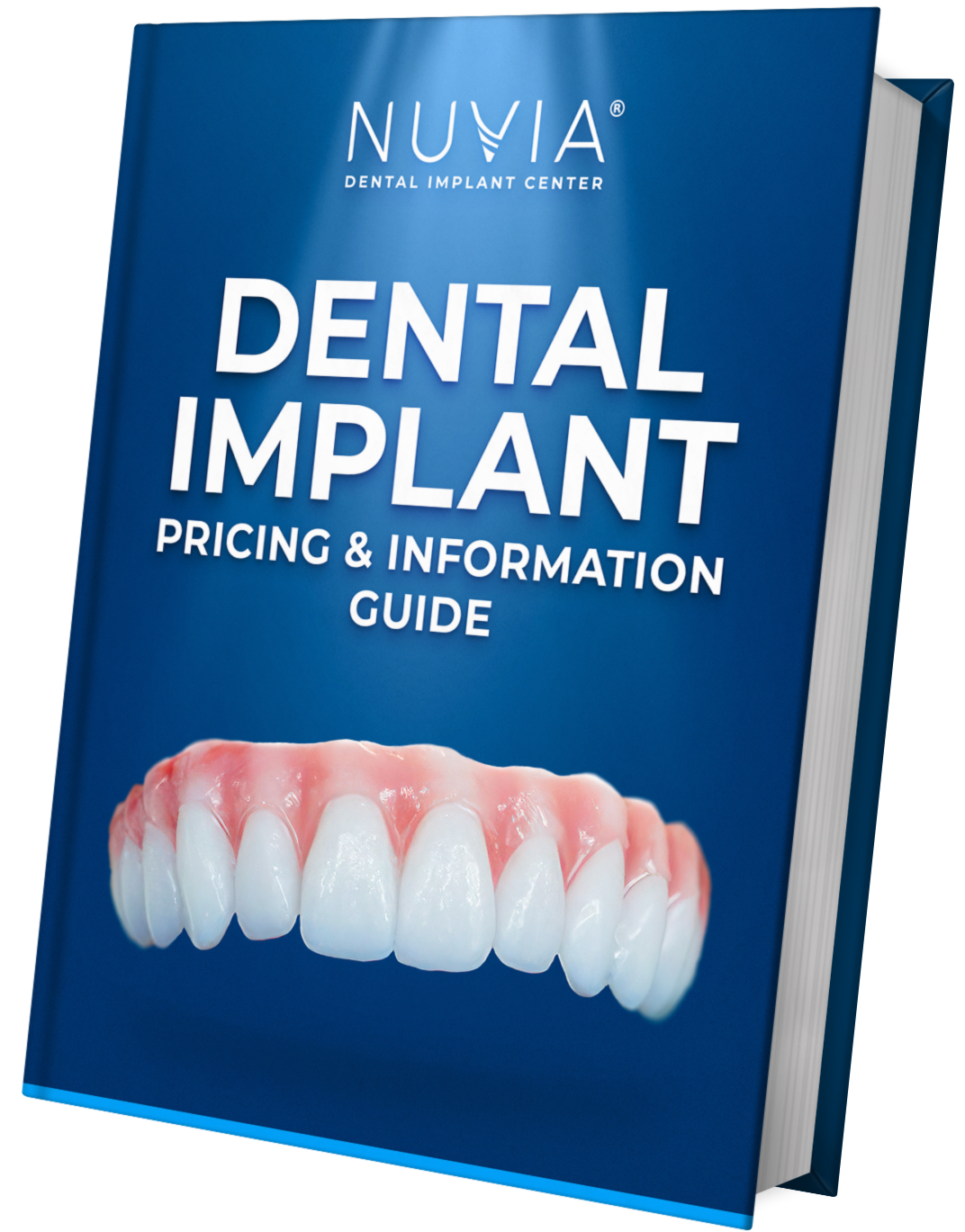
Full Mouth Dental Implants Success Rates

Did you know there are 4 critical things you NEED TO KNOW about full mouth dental implants?
Starting at #4 “What are Dental Implants?”
Dental implants are small, titanium posts that are surgically placed into the jawbone to replace missing teeth. They serve as an artificial tooth root, providing a strong foundation for a crown, bridge, or full arch teeth. These titanium implants are biocompatible materials (which means that your body is not likely to reject them), this allow them to fuse with the jawbone through a process called osseointegration. This creates a stable base for the replacement teeth, restoring function and appearance while preserving bone health.

#3 Benefits of Full Mouth Dental Implants
Full mouth dental implants offer several advantages over other tooth replacement options:
a. Improved Functionality:
Dental implants provide a stable foundation for replacement teeth, allowing patients to eat, speak, and smile with confidence.
b. Bone Preservation:
Dental Implants stimulate the jawbone, preventing bone loss and maintaining facial structure.
c. Longevity:
With proper care, dental implants can last for decades, making them a cost-effective long-term solution for tooth replacement.
d. Aesthetics:
Dental implants closely resemble natural teeth, providing an aesthetically pleasing and natural-looking result.
Expert Care at Nuvia Dental Implant Center
At Nuvia Dental Implant Center, our team of dental professionals is committed to delivering high quality care to our patients. We are dedicated to helping you achieve a healthy and beautiful smile through full mouth dental implants. Our expertise, state-of-the-art technology, and individualized treatment plans ensure that our patients receive the best possible care, leading to high success rates and long-lasting results.
#2 Aftercare for Dental Implants
Proper aftercare plays a vital role in the long-term success of dental implants. Following your implant surgery, it's essential to maintain good oral hygiene and attend regular dental check-ups to monitor the health of your implants and surrounding tissues. Some aftercare tips include:
a. Brushing twice a day with a soft-bristled toothbrush
b. Flossing daily using a water flosser or dental floss
c. Using an antimicrobial mouthwash to reduce plaque buildup
d. Avoiding smoking and excessive alcohol consumption
e. Attending regular dental implant check-ups and cleanings

#1 Success Rates of Dental Implants
The success rate of dental implants is generally high, with studies showing success rates ranging from 94% to 98% (1). This makes dental implants one of the most reliable and predictable treatments for tooth replacement. It's important to note that success rates may vary depending on various factors, such as the patient's overall health, oral hygiene, and the surgical technique used.

Factors Influencing Dental Implant Success
a. Patient's Health:
A patient's overall health plays a crucial role in the success of dental implants. Conditions such as diabetes, autoimmune disorders, or osteoporosis can affect the body's ability to heal and integrate with the implant. Smoking can also negatively impact the success rate, as it hinders blood flow and slows the healing process (2).
b. Oral Hygiene:
Maintaining proper oral hygiene is vital for the long-term success of dental implants. Regular brushing, flossing, and dental check-ups help prevent infections and gum diseases that can compromise the implant's stability.

c. Surgical Technique:
The expertise and experience of the dental professional performing the implant surgery are essential in ensuring successful outcomes. At Nuvia Dental Implant Center, our team of oral surgeons and prosthodontist are highly skilled in performing full mouth dental implant procedures, which contributes to our high success rates.
BONUS : Frequently Asked Questions
a. Are dental implants painful?
During the implant procedure, general anesthesia is used to ensure the patient's comfort. While some discomfort is expected during the healing process, most patients report minimal pain, which can be managed with over-the-counter pain medication.
b. How long do dental implants last?
With proper care, dental implants can last a very long time. In some cases, they may even last a lifetime. However, the longevity of dental implants depends on factors such as patient health, oral hygiene, and the expertise of the dental professional.
c. Can anyone get dental implants?
While dental implants are a suitable solution for many patients with missing teeth, some factors may disqualify an individual from receiving implants. These factors include uncontrolled medical conditions, not enough bone density, and having too many healthy teeth. An evaluation by a dental professional is necessary to determine if dental implants are the right choice for you.
In summary, dental implants have proven to be a highly successful and reliable solution for replacing missing teeth. With success rates ranging from 94% to 98%, patients can feel confident in choosing dental implants as a long-term solution for their dental needs. At Nuvia Dental Implant Center, our expertise in full mouth dental implants, coupled with our commitment to patient care, ensures that our patients have a world class experience.
To learn more about dental implants and discover if they are the right solution for you, take our 60-second quiz to find out if you are eligible.
Sources:
Source: (1) Pjetursson, B. E., Thoma, D., Jung, R., Zwahlen, M., & Zembic, A. (2012). A systematic review of the survival and complication rates of implant-supported fixed dental prostheses (FDPs) after a mean observation period of at least 5 years. Clinical Oral Implants Research, 23(Suppl 6), 22-38.
Source: (2) Heitz-Mayfield, L. J., & Huynh-Ba, G. (2009). History of treated periodontitis and smoking as risks for implant therapy. The International Journal of Oral & Maxillofacial Implants, 24(Suppl), 39-68.
Source: (3) Chrcanovic, B. R., Albrektsson, T., & Wennerberg, A. (2014). Reasons for failures of oral implants. Journal of Oral Rehabilitation, 41(6), 443-476.
More Articles Like This one

Dentures for Beginners: Your Complete Guide to Replacing Teeth

Understanding Full Mouth Dental Implants Procedure Steps






